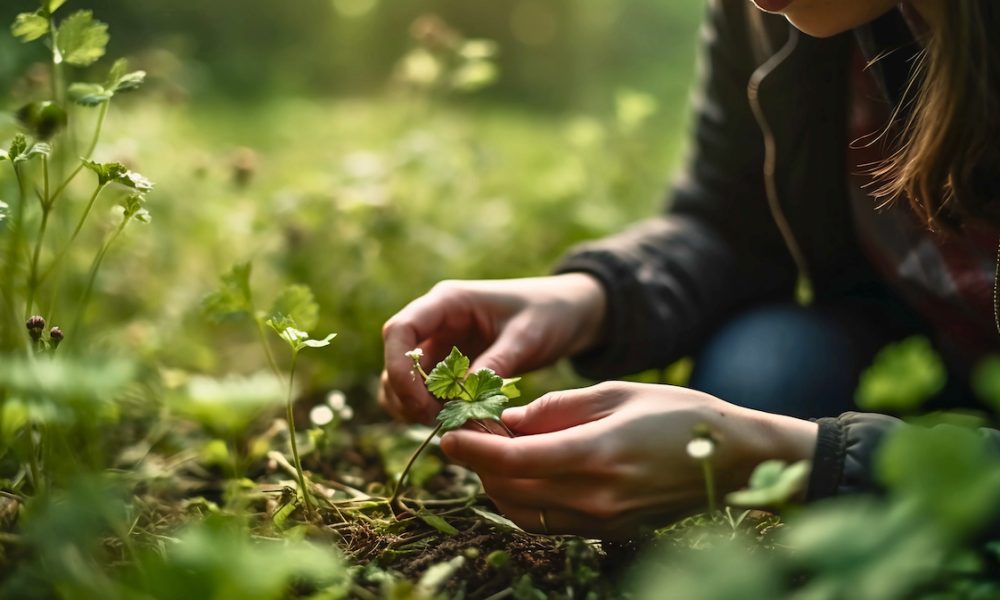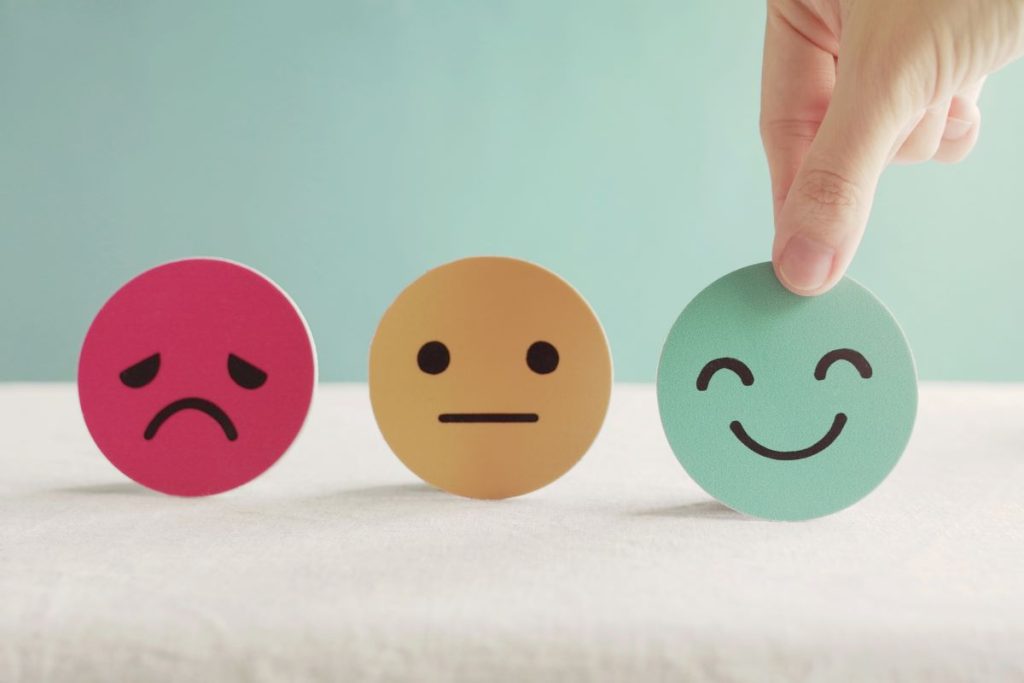
This spring, healthcare professionals will meet outside of the therapy room to explore the benefits that nature connection can bring to their work. Dr Claire McDonald, a neuropsychologist and one of the organisers of the event, tells NR Times why nature is an untapped resource for neurorehab.
We’ve all felt the relief of leaving our desks and taking a walk to our nearest green space. But the benefits are not just in our head.
There is actually a wealth of scientific evidence to support activities such as forest bathing for our mental and physical health, much of which originates from Japan, where forest bathing is an ancient practice and the government now recommends people spend at least two hours in nature per month.
Neurons and Nature is a non-profit festival bringing together nature connection, community and clinical practice.
The event takes place for the first time at the Down to Earth Project in Murton, Swansea, where experts in nature-based therapies—alongside the nature-curious—will celebrate and showcase the evidence-base on nature therapies and their role in neurorehabilitation.
While there are some unique challenges for individuals with neurological conditions in terms of connecting with nature, the benefits can be significant, for them and their caregivers.
One of those behind the event, Dr Claire McDonald, a clinical neuropsychologist and co-founder of Neurons and Nature, tells us more.
This feels a million miles away from the clinical settings in which therapists and healthcare professionals usually work, when did nature become something you wanted to weave into your work?
For a long time, people have been generally very aware of the positive impact of nature on our physical and mental well-being. In many health care settings there are gardens, access to large windows and things like that. However, not many clinicians are actually using that within the clinical work that they do.
It was through the [Covid-19] lockdown and those protected daily walks that we were all allowed when I think people started to recognise the significant impact that nature can have on how we feel.
Our observations [as neuropsychologists] of clients being calmer and more regulated, and more able to engage in the sessions, led to a couple of us undertaking forest therapy training, but also to people just incorporating nature-based mindfulness and techniques within their sessions.
What does forest therapy actually look like in practice? What do the sessions involve?
With a colleague of mine, I set up a social enterprise called Neurons and Nature CIC, through which we offer nature connection sessions for individuals and their family members. We offer indoor or outdoor sessions for people with diagnosed neurological conditions.
We present some information about how to incorporate compassion-focused therapy, so a little bit of education about how very often we’re stuck in our threat system and that can be really unhelpful for our bodies, but connecting with nature is one way of helping us enter into our rest and digest system where we slow down and feel more relaxed. Then we might do a series of nature connection activities, where we spend some time looking at the nature around us using all our senses, so immersing ourselves in the colours, shapes, textures, smell of the soil and listening to the birds sing or the breeze in the trees.
It’s not about doing exercise in nature. It’s not about getting your steps in. It’s actually about slowing down and really allowing your body to be present and to connect with what’s around us. What the research highlights is that that has a really helpful effect on our parasympathetic nervous system, and that can help with our immune system activity too.
What kind of benefits do your clients report from this as part of their rehabilitation journey?
The benefits of mindfulness and supporting people to develop relaxation tools and strategies have definitely been around for a long time, and particularly for this population, as they are at high risk of developing difficulties with anxiety and mood.
When we are able to support people to connect in nature, what they describe is feeling more relaxed. It’s the first time that their brain has been able to switch off and they can really feel the benefits of that. We also learn better when we are in a more relaxed state. For us, being able to share information when someone is feeling more relaxed and at ease, it just makes it easier to support and offer appropriate education.
And what about the benefits for their family and caregivers?
Similarly, with sessions for family members and carers, people describe an awful lot of guilt, an awful lot of worry and rumination about what they need to do and how they need to support their loved one. Just having some time for themselves where they can slow down and switch off a little bit from those responsibilities feels really important in sustaining their well-being and trying to reduce the risk of carer burnout.
What does the research say to support the use of nature-based therapies?
The evidence is really quite strong. Internationally, there is a whole host of information supporting the physiological, cognitive and emotional benefits of nature connection.
A lot of the research has focused on the natural woodland oils called Phytoncides, which are the tree’s natural immune system and what it highlights is that it has a really complementary and beneficial impact on our immune system, particularly on what are called natural killer cells, or NK cells, white blood cells that help fight off infected or diseased cells in things like cancer. What the research shows is that spending a couple of hours immersing ourselves in nature can have a really helpful effect and can increase these NK cells. And the benefits of that persist over time, so even a couple of hours can be beneficial over the course of a week.
What are the challenges in accessing this therapy for patients with neurological disorders and their healthcare professionals?
Unfortunately, a lot of our local green spaces are not developed with mobility or cognitive difficulties in mind, so after a neurological event, like a stroke or traumatic brain injury, there can be a lot of anxiety around that. We offer outdoor sessions where we can find somewhere that is very accessible, but we’ve also run a number of indoor nature connection sessions, where we will bring resources and materials indoors and support people to engage in activities that help them connect with nature. What the research highlights is that even looking at images of nature, or indoor plants can be beneficial, so we can adapt nature connection opportunities to make it accessible to the individual.
There is a little bit of fear around taking people outside or bringing natural resources into sort of clinic or hospital type settings, but there certainly seems to be a great deal of interest in it and I think clinicians probably recognise the positive impact that nature connection has on their own well being and health.
Why is access to these types of therapies so important, particularly at this point in time?
NHS waiting times are longer than ever and not many people can access or afford private neuropsychological support or intervention or they may be going through a litigation process, so access to nature is a bit of an untapped resource. We just want to highlight to people that it’s there for all of us and weaving a little bit more nature connection into our day can be really helpful.
In modern society, we have become very far removed from the natural world, why is it so important for everyone to connect with nature in this way?
Some of the theories highlight that we’re designed to find these environments helpful and soothing, so understandably, the disconnection from that can impact on our health. I think there is increased awareness of that now, which I think that was fuelled by lockdown, when those of us that had gardens and were able to go for walks in natural environments really noticed the positive impact of that. There’s most definitely an increased appreciation of nature, it is just about highlighting the opportunities to weave those nature connection moments through our day. It’s about moments, not minutes, and the sensory experience and relationship with nature, rather than necessarily what we physically do in that environment.
The first Neurons and Nature festival takes place on 10 May, 2024, who is the event aimed at?
I think healthcare professionals will find it most interesting, so that could be psychologists, neuropsychologists, occupational therapists, speech and language therapists, anyone who’s working in a healthcare profession and wants to kind of find out a little bit more about the benefits of nature and how they could weave that into their work. We’re keen to kind of highlight that this is a way of working for people who are in training as well, so there are discounts available for those who are going through training and group discounts.
It’s very different from the usual medical conferences usually attended by healthcare professionals, what do you hope they will take away from it?
We hope that it will feel very different to the traditional conference room arena. We want those attending to feel the benefits of nature themselves, so there’s lots of opportunities to test out forest bathing, to spend time in nature, to feel connected to each other around the campfire. It’s hopefully going to have much more of a relaxing festival-feel than the traditional conference, which can sometimes feel a bit cognitively demanding.
We want people to be able to relax, connect and chat, so offering the opportunity to spend time around the campfire is just another way of really creating that sense of community. And all of the proceeds from the event will be going to non-profit organisations.
It’s obvious that the potential benefits for neurorehab are very exciting, but it feels like you have tapped into something much bigger here?
I suppose there is a bigger agenda around wanting to promote greater care and compassion for the natural environment. There’s evidence to highlight that the more connected we are to nature, the more likely we are to want to care for the wildlife and natural environment around us. And that feels more important than ever at the moment. It’s a really nice opportunity to highlight how we are not only developing compassion for ourselves through these activities, but also these activities promote compassion towards the natural environment.
Find out more and get tickets to the event here








